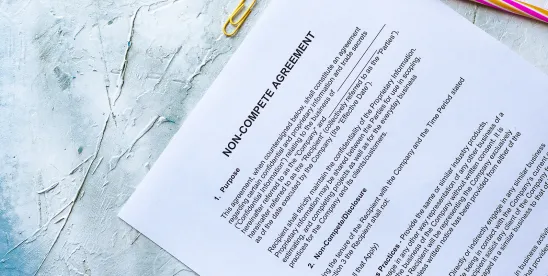On February 14, 2025, the Trump Administration started its makeover of existing National Labor Relations Board (“NLRB”) policies by rescinding several Biden-era General Counsel Memoranda. These rescissions are a clear next step in revamping the NLRB, coming on the heels of the NLRB General Counsel’s, Jennifer Abruzzo, termination on January 27, 2025. Although not unexpected, the rescissions are an important development for all employers that use restrictive covenants and severance agreements. Among the rescinded Memoranda are:
GC 23-05: SEVERANCE AGREEMENTS
This Memorandum sought to expand the Board’s McLaren Macomb decision that ruled that most standard confidentiality and non-disparagement clauses in severance agreements are unlawful under the NLRA. Under this Memorandum, the NLRB “clarified” that: (a) confidentiality provisions are unlawful unless they were “narrowly-tailored to restrict the dissemination of proprietary or trade secret information for a period of time based on legitimate business justifications [that] may be considered lawful”; (b) non-disparagement provisions have to be “limited to employee statements about the employer that meet the definition of defamation as being maliciously untrue, such that they are made with knowledge of their falsity or with reckless disregard for their truth or falsity”; (c) “duty to cooperate” provisions that require an employee to cooperate with company investigations must be closely scrutinized and are generally unlawful; and (d) savings clauses typically do not cure what the NLRB considers to be an unlawfully overbroad restriction.
GC 23-08 (NON-COMPETE AGREEMENTS) AND GC 25-01 (REMEDIES FOR NON-COMPETE "STAY OR PAY" CLAUSES)
Through GC 23-08, the NLRB took the position that non-compete agreements given to non-managerial employees generally violate the NLRA. GC 25-01 sought to expand financial remedies for employees who were subject to non-compete and “stay or pay” agreements, not only nullifying them, but providing a means of seeking potentially significant damages against employers that improperly used non-compete and “stay or pay” agreements.
KEY TAKEAWAYS
There are two basic takeaways from this recent action. First, the Trump Administration’s rescinding the two Memoranda covering non-compete agreements signals that it will abandon the Biden Administration’s attempts to invalidate non-compete agreements. Recall that a more comprehensive Federal Trade Commission Rule that generally banned all non-compete agreements was struck down by a federal court in August, 2024. That decision will almost definitely stand, and non-competes will be governed by state law.
Second, there remains some risk in using confidentiality and non-disparagement provisions in severance agreements, particularly for non-managerial employees. The McLaren Macomb ruling that most confidentiality and non-disparagement provisions are invalid is still the law until the NLRB itself (not just its General Counsel) changes the rule. The NLRB currently only has two members (out of five) so the Trump Administration cannot change the law or fully implement its labor agenda until the Board positions are filled.




 />i
/>i

